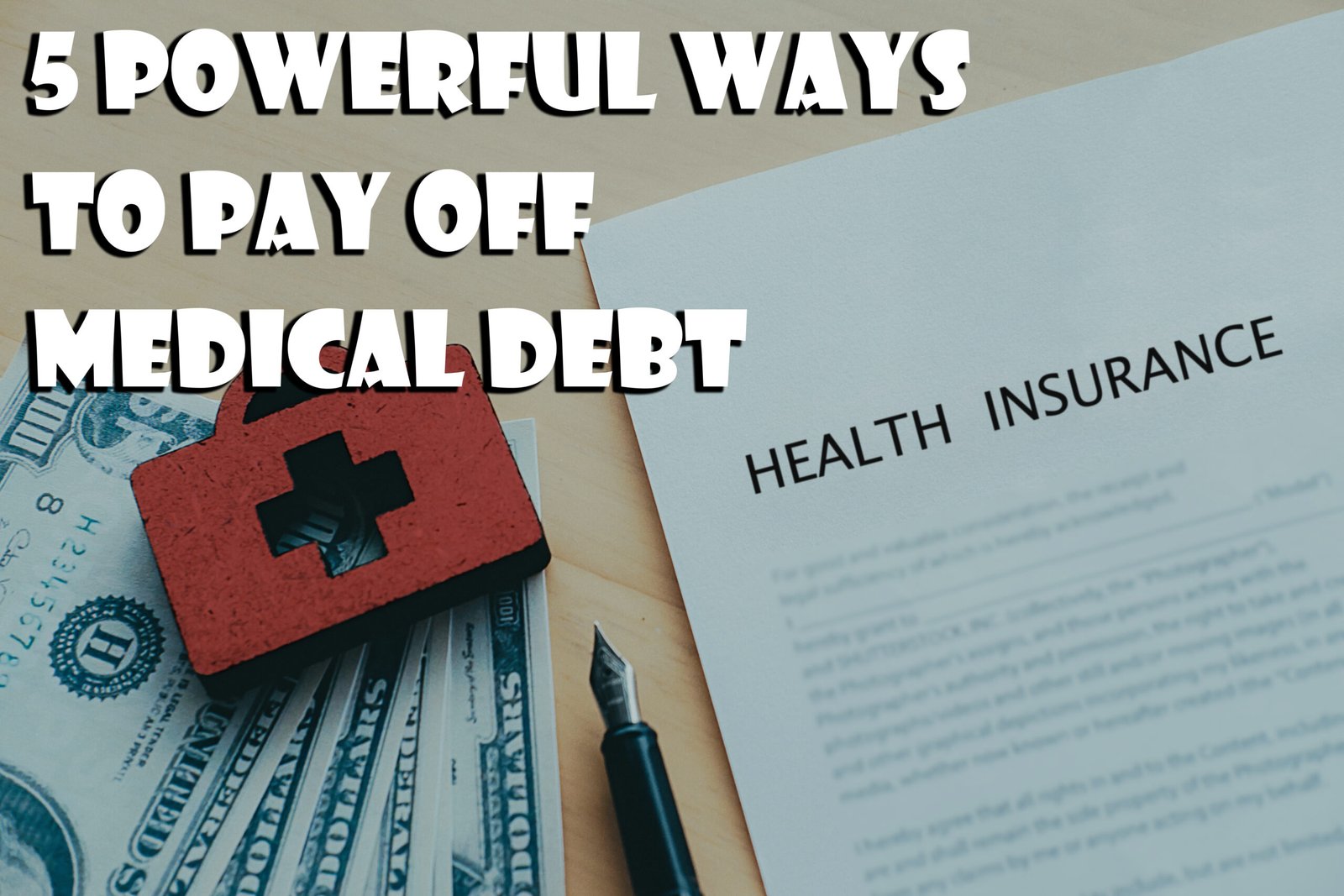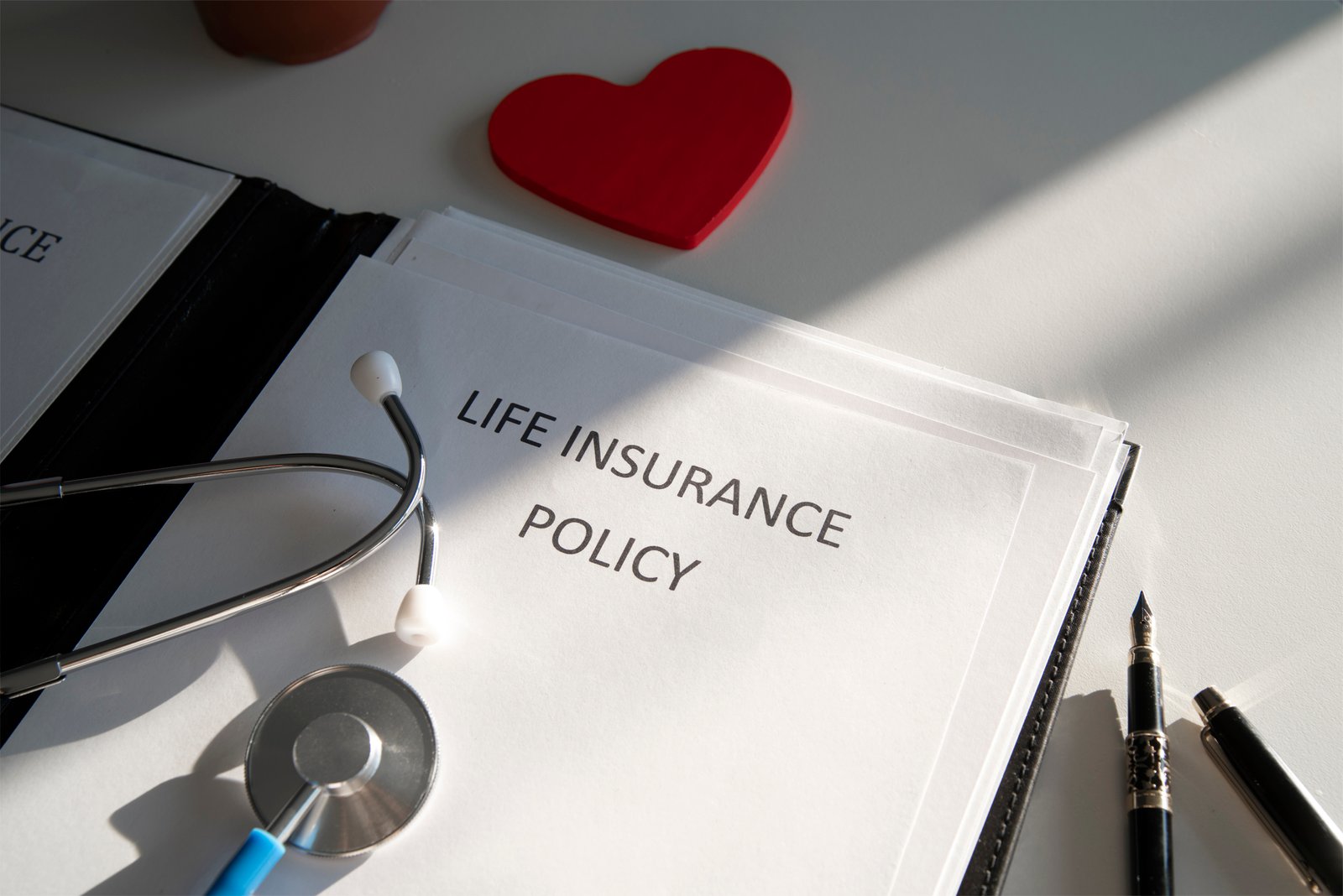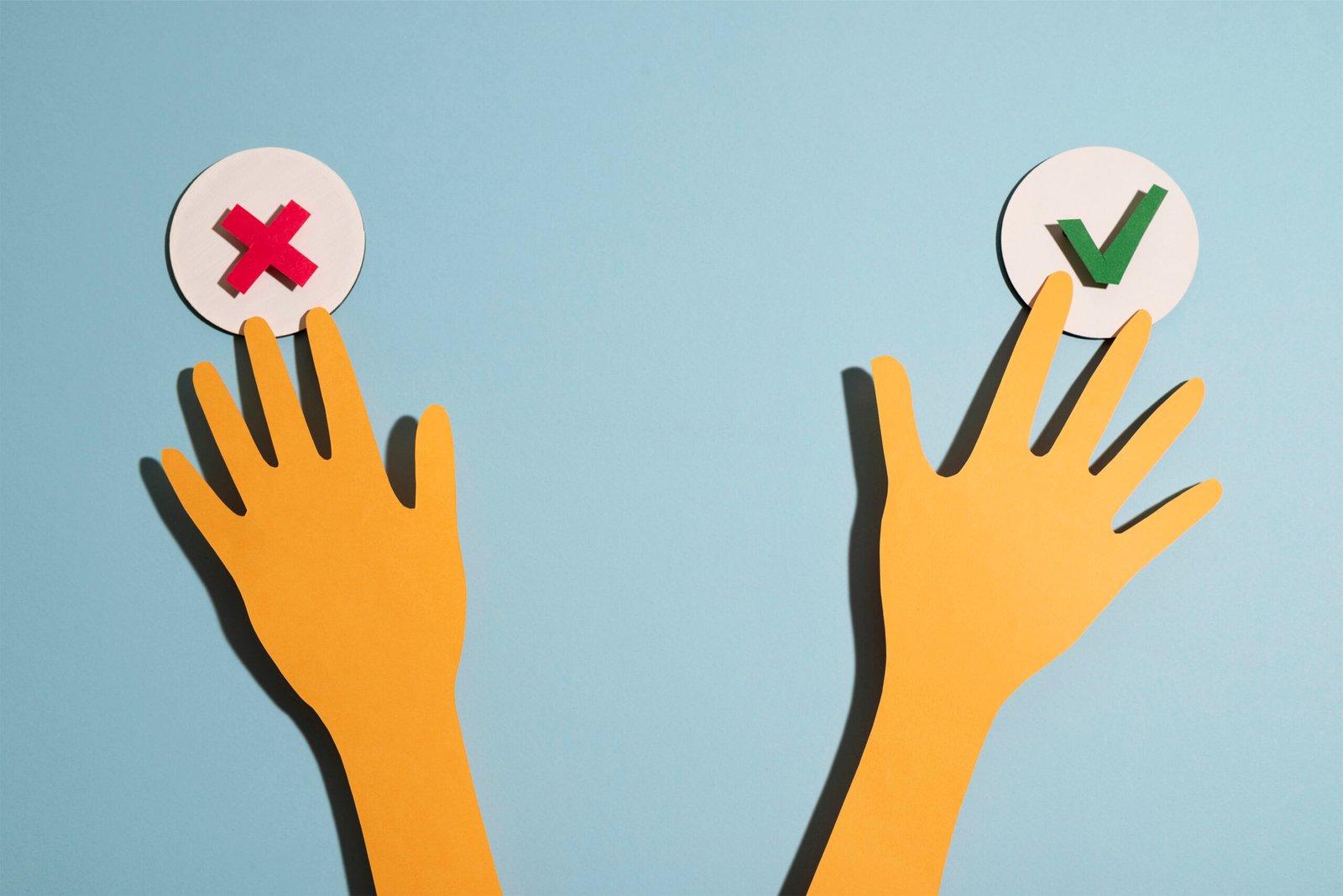Struggling with bills? Discover 5 powerful ways to pay off medical debt—even with bad credit. Regain control, reduce stress, and rebuild your financial health.
Introduction Of Ways to Pay Off Medical Debt
Healthcare expenses continue to spiral out of control in 2025, and for many Americans, even the most basic form of medical treatment may balloon into astronomical debt. It’s a double-edged sword if one is already battling to get back on track from low credit scores. Unpaid bills from hospitals, unexpected charges, and aggressive collection agencies push most individuals into believing that they will never be able to recover financially.
But here’s the truth: you’re not alone. As of recent statistics, more than 41% of adults in the U.S. have some medical or dental debt. Even with insurance, excessive deductibles and out-of-network costs can leave many families with balances they are unable to pay. And then, of course, there is the psychological toll of illness, compounded by mounting bills and relentless credit stress.
The bad news? There are intelligent methods for negotiating, negotiating, and resolving medical debt, even when your credit report is not its finest. In the course of this book, we’ll be addressing why medical debt arises, how it will impact your credit, and what actual, achievable measures you can take so that you can regain control of your finances once more. If you’re swimming in bills or merely looking to the future, you’ll find hope, direction, and encouragement on the pages ahead.
You may believe that coverage keeps costs of care in check—except that too often, it does not. Even coverage can lead to staggering out-of-pocket bills in the form of huge deductibles, teeny provider networks, and surprise bills. You can have an in-network hospital but an out-of-network physician and receive a second and unforeseen bill, for example.
Emergency service is also an offender. During a medical emergency, there is no time to window shop for the lowest price tag. Patients pay thousands of dollars for ambulance transport, ER visits, and surgery that they did not anticipate.
And another so prevalent, familiar issue? Mistakes in medical billing. Hospitals always manage to find a way to mess it up—billing you for something you weren’t even given or double-billing you for the same thing. Too often, though, unless you go and double-check your bill, you’ll be paying for it.
And shame? Unpaid bills at the hospital double overnight. Let them be alone long enough and they are forwarded to collection accounts, which mar your credit report and reduce your ability to borrow in the future.

How Medical Debt Impacts Your Credit Score
Medical debt will damage your credit rating no quicker than any other form of debt—but when it does, the damage is devastating. Depending on how the hospital or physician has their policy set, they will typically provide you with around 12 months before they turn the unpaid account over to the collection agencies, and you can pay or settle the account. But when it does go to a collection agency, it is a blemish on your credit report.
Thankfully, FICO and VantageScore models aren’t so one-size-fits-all anymore. Paid medical collections no longer ding your credit score since 2023, and unpaid collections under $500 are a thing of the past. And yet still, nonetheless, old-fashioned models remain, especially from small lenders and landlords.
Bad credit is a snowball: it will refuse you low-interest loans, raise rates, and complicate paying or rolling over debt. Worse, individuals are making an unfavorable comparison between medical debt and consumer debt and attempting to use the same strategies to win, when medical debt is dischargeable or negotiable.
It’s having an understanding of why medical bills come and what you can do in response holds the key to securing your financial future.
What to Do Now if You Can’t Pay
If you get a medical bill and can’t pay, don’t sit idly by. Don’t put it off and let it stew. Instead, do these helpful things:
- Call your provider right away. Inform them that you’re having trouble paying bills. Hospitals do have cost-reduction policies or collection hold policies for poor patients.
- Ask for a breakdown bill. Mistakes on bills happen too often. Spend a few minutes looking at your bills, and you might be able to spot double-billing or services that you never used.
- Ask for financial help. Hospitals have a legal obligation to provide charity care or income-based hardship programs. Giving them half of what you owe is a big difference.
- Negotiate your bill. Providers will accept less money upfront if it reduces their collection headaches. Be bold.
- Set up a payment plan. Interest-free, flexible-term plans are available at most hospitals. Steer clear of credit cards—they redescribe the debt as high-interest consumer loans.
Assertive, knowledge-based advocacy not only calms your fears—it avoids credit damage and promotes longer-term settlement.
Debt Relief for Low Credit Score Borrowers
If you have a poor credit rating and you are drowning in doctor’s bills, it can seem like hope is lost. The reality is that there are actually a number of better debt relief options that are specifically for borrowers like yourself. They won’t always kill debt in a day—but they can negotiate for you for fewer dollars than you owe, consolidate the bills, or even eliminate half of the debt.
Actually, none of them charge good credit first. But if you are looking for services from community aid programs, medical debt settlement services, or not-for-profit credit counseling, the best among them for you would be determined by how much you can afford to pay and what you are looking to accomplish. Wherever you make up your mind, the point is that you duly investigate all of them and don’t fall prey to scams or predatory lenders. These are some of the best medical debt relief programs for bad credit consumers.
✅ 1. Nonprofit Credit Counseling Services
Non-profit credit counseling organizations provide you with expert counsel and one-to-one guidance to guide you away from suffocating debt. They will walk you through your circumstances, will negotiate your medical suppliers, and even set up low-fee payments for you. The concept is to have a Debt Management Plan (DMP) that you can adhere to and maintain. The silver lining in this is that there is no good credit to qualify for—these facilities are usually in low-cost or even no-cost terms, just what people already subsisting on bare essentials need.
✅ 2. Medical Debt Consolidation Loans
Even more difficult to get with poor credit, consolidation loans will bundle all your medical charges into one simple monthly payment. This can lower your rate or just make billing easier. Credit unions and websites do offer some bad credit customer loans—watch out, however, for outrageously high interest rates. Always bargain at pawn shops. Er, at least compare prices and look at the fine print to avoid being a victim of sleazy scams behind the fix for quick fixes.
✅3. Medical Debt Settlement Companies
Debt negotiation companies are eager to cut your total medical debt—sometimes 40–60%. They collect money from you regularly and only disburse it to your providers after negotiating. While this will cut your overall debt, it’s not ideal: Your credit report is even damaged further, and fees are expensive. Only use professional, legitimate companies; do not sign away contracts without a full understanding of the risk and conditions.
✅4. Crowdfunding and Crowdfunding Support
You can utilize sites like GoFundMe, YouCaring, or GiveForward to pay for unexpected or high medical bills. It will depend on your network and circumstances, but strangers have given up to thousands. And then call upon local churches, charities, or civic organizations that provide medical assistance. Not every time, but it can provide immediate, strings-attached assistance without damaging your credit or reimbursement status.
Will Bankruptcy or Legal Aid Erase Medical Debt?
If your medical bill slips through your fingers and you’ve already suffered a blow to your credit report, you might ask yourself: Do I need legal help—or bankruptcy—to bail me out? While not the first thought, bankruptcy will erase medical debt in nearly all cases, but a handful. Legal help will also be useful if you are being harassed by collectors, charged too much, or sued for non-payment. Both options do a tremendous amount of damage, however, and should be used carefully.
Bankruptcy will remain on your credit report for 10 years and can impact your future ability to borrow or rent. But in dire circumstances, particularly when you’re not getting much or any money entering the household, or are being swamped with collection strategies may be your answer to recovery. Talk with a nonprofit credit counselor or legal aid agency if this may be your escape.
✅ Chapter 7 or Chapter 13 Bankruptcy Options
Chapter 7 is a type of bankruptcy that permits the outright discharge of unsecured debt, such as that mentioned on the hospital bill, by selling off assets. It’s typically used by individuals with low or no income who have a significant amount of debt. Chapter 13 allows you to reschedule debt into a repayment plan of 3–5 years and prevents you from having to sell your property to pay. Both have requirements, filing fees, and long-range credit impact. Bankruptcy can be a complete escape, but it is a last-chance legal action—one only if you exhaust less-harmful options.
✅Obtain Free or Low-Cost Legal Representation
When collectors are taking advantage of you, menacing wage garnishment, or possibly even defrauding you through medical bill scams, having an attorney by your side is worth its weight in gold. Most agencies offer free or low-cost legal representation, particularly to low-income consumers and seniors. Attorneys can assist in enforcing your FDCPA rights or challenging erroneous billing. Lawyers can help you put a defense to suit together or settle out of suit. Day to day can be the day to see a lawyer prior to final choices, i.e., bankruptcy.

Long-Term Strategies to Prevent Future Medical Debt
Medical debt is a debt cycle—unless you simply happen to be the whiz who escapes the cycle, you can pretty much bank on the fact that you will once again be in debt. More time and effort must be spent to avoid future debt than it takes to retire existing debts when your credit is bad. Anybody is only one crash away from being broke, and, as such, an imperative prevention system of the highest level. Things to do in the future are attaining economic stability, earning proper health care benefits, and moving fast before bills start to accrue.
Look up low-premium, low-benefit insurance plans
Everyone purchases the cheapest cost premium month, yet the plans have higher out-of-pocket costs. Improved options to compare when paying hospitals, even when the premium price is marginally smaller, will return you when you are gravely sick or in crisis. Spending time during annual open enrollment periods to comparison shop your open-ended plan could be the change that will save you dollars in the long run.
Open a Health Savings Account (HSA).
An HSA is an individual savings plan to which you contribute pretax dollars, and it’s tax-deductible. You can spend it only on medical expenses. It’s a wonderful way to save since the money carries over from year to year and, actually, can even be invested. HSA funds are used to pay for office doctor visits, prescription medication, surgery, and even to cover insurance premium bills. It’s especially ideal for freelance workers or those with high-deductible plans.
Create an emergency fund with a value of $25/month.
Having the emergency fund on hand against such surprise bills as doctor’s bills shields you from surprise bills. Saving $25-$50 a month on a limited budget, though, will eventually pad you. Keep it in a separate savings account so that you can’t spend it. When your medical emergencies come up, you’ll have a pad that won’t drive you out, and use credit cards or borrow.
Seek out clinics that offer income-based or sliding-scale fees
Many community health centers and clinics offer services based on your income. These include primary care, dental, mental health, and prescription programs. It’s a great option if you’re uninsured or underinsured. You’ll receive quality care at a fraction of the cost—and sometimes for free—without adding to your debt.
Learn your billing rights under HIPAA and the No Surprises Act
Patients have greater legal options under the No Surprises Act to protect themselves against surprise billing. Surprise out-of-network billing is prohibited to most of you, and you might qualify for an advance cost estimate beforehand. Having knowledge of your rights empowers you to fight preposterous charges or contest billing errors. It can save you thousands of dollars in surprise charges.
Always ask for advance cost estimates before procedures
Doctors and hospitals are under a legal obligation to quote you prices. Ask for the breakdown of the cost before any procedures or tests. It makes you shop, say no to the unimportant, or think ahead. It also protects you from shock at unexpected bills likely won’t get paid and damage your credit.
Advantages & Disadvantages Of Medical Debt
Advantages of Paying Medical Debt Strategically is a gem
You’re likely in crisis mode at this point, but smart, forward-thinking action to reclaim control of your debt is the best thing that’s ever happened:
✅ Less money, stress, and worry
Having a plan, fear and uncertainty about your debt begin to crumble. You’ll feel more in control, even when your plan for what comes next for you is still in its fledgling stages.
✅ Prevent wage garnishment or lawsuits
You dissuade your supplier from becoming aggressive with you or tying your wages by paying in advance or seeking assistance.
✅ Slow Credit Repair Begins
Whenever you settle your accounts, part or final good behavior is reported to the credit report.
✅ Interest-free payment plans
There are some medical suppliers who never ever charge any interest on the payment installment. It is a very uncommon chance to pay without a single pound of financial liabilities.
✅ Self-discipline and awareness
In addition to troublesome budgeting and billing are financial wellness habits that reward years from now rather than today.
Disadvantages to Steer Clear Of
Though options are available, there are disbenefits to steer clear of:
❌ Predatory consolidation or loans with extremely high interest rates
Some lenders prey on desperate borrowers. Compare APRs, terms, and fees before signing the agreement to consolidate.
❌ Credit score effect (if reported or sent to collections)
Medical debt declines, but collections do damage to your score—especially when they go unpaid for awfully long times.
❌ Payment limits for bad patients
Some hospitals are hard-headed and have no idea about variable incomes or unforeseen financial adversity.
❌ Embarrassment and agony
Debt is frightening—especially when it’s yours and your health. Fear and shame might keep individuals from getting help, further perpetuating the issue.
❌ Incessant paperwork and phone calls
Between appeals, billing mistakes, and requests for assistance, medical debt adds up. Let yourself wait and worry not.
FAQ:
1. Will medical debt always appear on your credit report?
No. Medical debt typically will not report until 12 months after the due date has passed, so you can settle or pay it initially before it reports on your credit report.
2. Is medical debt forgivable?
Yes, through hospital or non-profit financial assistance programs. You will typically be required to prove hardship of income and provide documentation in order to qualify.
3. How are medical collections different from general collections?
Med bills affect your credit score less with the more recent FICO scoring. They report slowly, also.
4. Can I negotiate a collections bill?
Yes, you can if the debt is being collected or not. Collectors will take a lesser amount or a lump sum to close the account.
5. Does paying medical debt improve my credit score?
It is—particularly if the debt remains with the original creditor. Even when it’s in collection, bringing the account current is sound credit use and, over the long term, beneficial to credit.
Conclusion:
Medical debt is climbing the mountain, but by continuing in the correct direction, with the proper attitude and equipment, you can climb over it. Whether negotiating face-to-face with providers, dodging through the assistance of nonprofits, or negotiating on a payment plan, with every step that you make, you’re that much freer.
You can rebuild your financial universe and credit in time, but it is possible. It starts with knowledge and commitment—regardless of how small the first step.
You are not in debt. With commitment, determination, and support systems as they appear in 2025, fiscal peace of mind is not only attainable but accessible.
References:
- CFPB Medical Debt Report (2022–2024)
- FICO Scoring Model Updates
- No Surprises Act Info
- National Foundation for Credit Counseling (NFCC)
- GoFundMe Statistics (2024)








